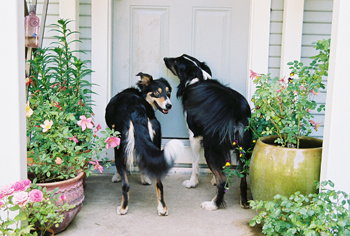
Welcome to my back door. That’s Ruby looking back over her shoulder and Conner anticipating going inside. That grey door is now covered with MUD.
As in muddy pawprints. As in, “Hey, it’s raining! Let us in!” And in they come and immediately they jump into the tub in the extra loo and have their feet rinsed off and then they jump on towels. It’s a messy affair, I must admit. Thank goodness they are Border Collies with large vocabularies, so it’s not as bad as it sounds. Oh, what am I talking about? Of course it’s as bad as it sounds! It’s a bloody mess!
What to do?
Traditionally I have turned to the virtues of rice straw. Bought bales. Spread it out. Let the dogs run over the big backyard to their hearts content. No problem. But this week I spotted the following story making its way around the Net and it brought to the fore a nagging question that had been trying to worm its way through to my conscious mind for some time now, articulated in the following: Why am I raking up all these leaves and having them carted away, even if it’s in the recycling bin? Wouldn’t they serve as a good mulch and perhaps even end the Mud Problem??
Here’s the story, meant to be humorous, though, of course, when you think about it, it’s not. It’s just one more example of our poor stewardship of planet Earth, and our disconnect from the natural cycles of life. (Let me count the ways…)
GOD: St. Francis, you know all about gardens and nature. What in the World is going on down there in the USA? What happened to the dandelions, violets, thistle and stuff I started eons ago? I had a perfect, no-maintenance garden plan. Those plants grow in any type of soil, withstand drought and multiply with abandon. The nectar from the long lasting blossoms attracts butterflies, honeybees and flocks of songbirds. I expected to see a vast garden of colors by now. But all I see are these green rectangles.
ST. FRANCIS: It’s the tribes that settled there, Lord. The Suburbanites. They started calling your flowers weeds and went to great lengths to kill them and replace them with grass.
GOD: Grass? But it’s so boring. It’s not colorful. It doesn’t attract butterflies, birds and bees, only grubs and sod worms. It’s temperamental with temperatures. Do these Suburbanites really want all that grass growing there?
ST. FRANCIS: Apparently so, Lord. They go to great pains to grow it and keep it green. They begin each spring by fertilizing grass and poisoning any other plant that crops up in the lawn.
GOD: The spring rains and warm weather probably make grass grow really fast. That must make the Suburbanites happy.
ST. FRANCIS: Apparently not, Lord. As soon as it grows a little, they cut it, sometimes twice a week.
GOD: They cut it? Do they then bale it like hay?
ST. FRANCIS: Not exactly Lord. Most of them rake it up and put it in bags.
GOD: They bag it? Why? Is it a cash crop? Do they sell it?
ST. FRANCIS: No, sir — just the opposite. They pay to throw it away.
GOD: Now, let me get this straight. They fertilize grass so it will grow. And when it does grow, they cut it off and pay to throw it away?
ST. FRANCIS: Yes, sir.
GOD: These Suburbanites must be relieved in the summer when we cut back on the rain and turn up the heat. That surely slows the growth and saves them a lot of work.
ST. FRANCIS: You aren’t going to believe this, Lord. When the grass stops growing so fast, they drag out hoses and pay more money to water it so they can continue to mow it and pay to get rid of it.
GOD: What nonsense. At least they kept some of the trees. That was a sheer stoke of genius, if I do say so myself. The trees grow leaves in the spring to provide beauty and shade in the summer. In the autumn they fall to the ground and form a natural blanket to keep moisture in the soil and protect the trees and bushes. Plus, as they rot, the leaves form compost to enhance the soil. It’s a natural circle of life.
ST. FRANCIS: You’d better sit down, Lord. The Suburbanites have drawn a new circle. As soon as the leaves fall, they rake them into great piles and pay to have them hauled away.
GOD: No. What do they do to protect the shrub and tree roots in the winter and to keep the soil moist and loose?
ST. FRANCIS: After throwing away the leaves, they go out and buy something which they call mulch. They haul it home and spread it around in place of the leaves.
GOD: And where do they get this mulch?
ST. FRANCIS: They cut down trees and grind them up to make the mulch.
GOD: Enough! I don’t want to think about this anymore. St. Catherine, you’re in charge of the arts. What movie have you scheduled for us tonight?
ST. CATHERINE: Dumb and Dumber, Lord. It’s a real stupid movie about………….
GOD: Never mind, I think I just heard the whole story from St. Francis.
Anonymous
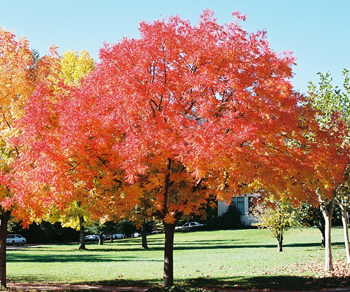
So. I want to take this parable to heart and use the leaves that drift into my yard on the wind from all sides here, in vast numbers at this time of year, naturally providing what I hope to be an organic, cost-free solution to our little winter mud problem. (Thanks, wind!) If there are any readers who have any experience with this sort of thing, I’d love to hear about it. Meanwhile, in my ideal dreamworld, I am looking forward to having a use for the many many leaves that fall on and about this property. Bay, oak, walnut, maple, magnolia, and mulberry, poplar, plum, quince, apple and fig. Quite a melange, don’t you think? It sounds quite lovely. Those of you who have begun reading my posts will know I’m a bit of an accidental gardener. If there is something you think I should know, those of you with more deliberate information, please advise! Thank you!
Posted on October 24th, 2007 by Kathryn
Filed under: People at Work
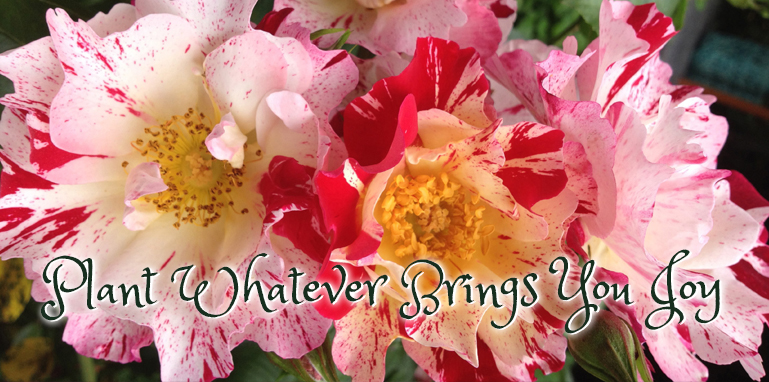

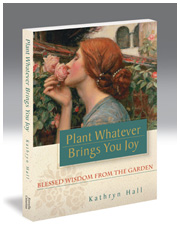







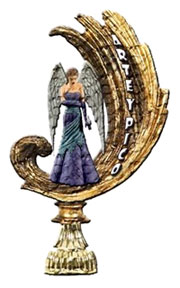
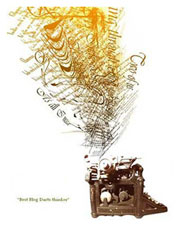
Hello Kathryn —
I do have a tip or two for your leaf project …
The bad news is … Leaving a thick layer of leaves on your lawn or garden can create conditions that lead to rotting of the grass or perennials beneath.
The good news is … Leaves will make an excellent compost for your gardens. I don’t leave my leaves (interesting use of that word, huh?) on the ground in the fall, so my suggestion won’t help to resolve your mud problem.
However …
I do get my mower out with the bagger attached and chop them up as I ride over them with the mower blades running full blast. The I dump about one-third of the shredded leaves (they will compost much better when they’re shredded) into my compost bin, and bag up the rest. Through the winter months, I will add uncooked fruit and vegetable food scraps (no meat or fatty products) on top of the leaves in the bin. Periodically, I’ll layer some more leaves and food scraps to the mix and stir up the whole thing with a pitch fork to aerate it. I stir every few weeks.
What you are accomplishing is a nice mixture of carbon (the leaves) and nitrogen ( the food scraps) to come up with this delightfully rich product to use with your spring plantings. In addition to food scraps for nitrogen, you can also use things like grass and plant clippings, eggshells, and coffee grounds for the carbon side of the mixture.
Sorry I didn’t answer your muddy paws problem!
In Peace ….
>Leaving a thick layer of leaves on your lawn or garden can create conditions that lead to rotting of the grass or perennials beneath.
Ron, thanks. The good news and the bad news is that there are no perennials or grass underneath to rot. Thus the mud…
Hi Kathryn:
Leaves make good mulch and will also cover the mud just fine. For a quick fix, just dump them whole where the mud is. If you have some left over, pile them up and compost them. Adding a nitrogen source such as manure will help them to decompose more quickly, but even on their own, they will break down over time. You can then use the compost to put back out in the muddy areas year round—it is more stable and attractive than the leaves.
Regards:
Glenn Mc.
My dad and I have been using the fallen leaves for years now….including oak leaves that do not break down easily. He uses the blower to blow all the leaves (un-mulched) onto his perennial flower beds. He removes only about 1/3 of them in the spring to allow the plants to come up. His garden has been beautiful since I was a little girl!
I have 3 large dogs and some visiting dogs year round. My backyard is low and holds water in some places. It is very shaded and therefore we get lots of mud and little grass. For years I have been taking bags of leaves from my neighbors (approximately 150 per season) and dumping them in my back yard where the dogs run and where the water drains slowly. It works wonders for me! I also do as my dad and blow my own leaves onto my flower beds. Many folks have asked me what kind of fertilizer I use because my beds are so beautiful….I tell them leaves only. No one really believes me especially when they discover I do not mulch them and use them whole.
I love that the leaves make help make my yard beautiful and the mud under control.
Oh, Sheila! I’m so glad you found this post. How timely! This is the very confirmation I am needing about what to do with the ground before the rains come in! I will begin immediately to pour the leaves I am raking up back on the ground in the open areas. Thank you so much! You are my Mud Angel! Kathryn xoxo